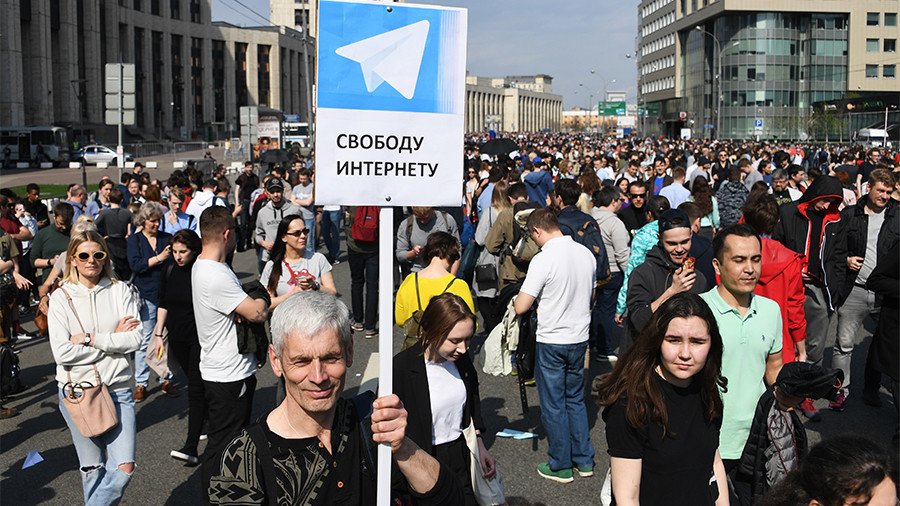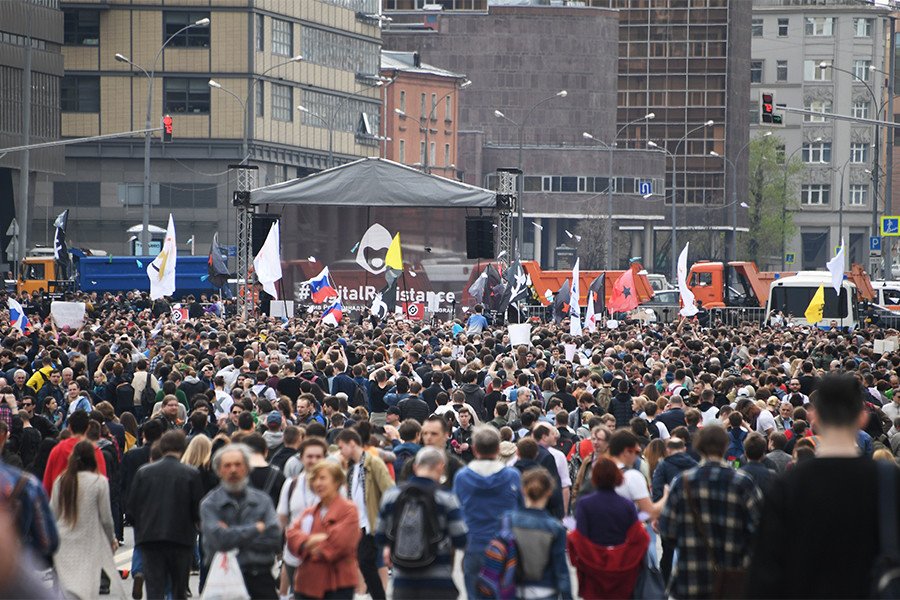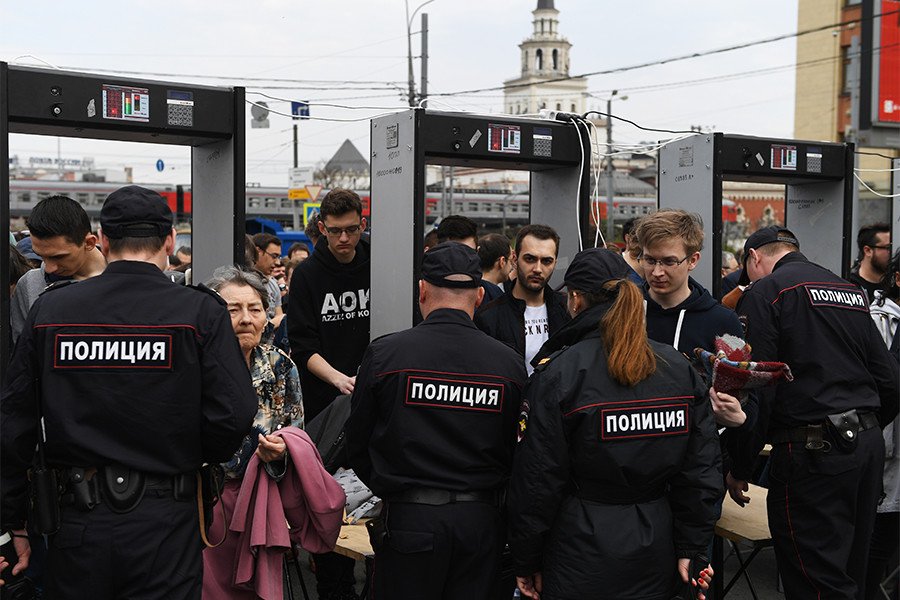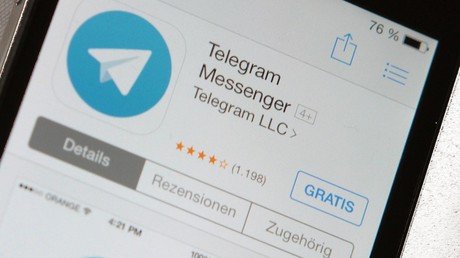Rally in support of banned internet messenger Telegram held in Moscow

Crowds have gathered in central Moscow to join a protest in support of Telegram messenger, which has recently been banned by Russian authorities. The rally was peaceful, according to police.
Some 7,500 people joined the march and rally in support of the messaging app, which was held on Sakharov Avenue around 2:00pm local time, Moscow police said in a statement. The event, organized by a group of activists, was earlier approved by Moscow City Hall.
The demonstrators marched through the street holding placards and banners that read: “Ban is not a solution” and “For the freedom of internet!” At the end of the rally protesters launched paper planes, a symbol associated with the messaging service.

The rally was peaceful with no breaches of public order, according to local police. “The police officers together with the National Guard provided security as well as maintained law and order," law enforcement said, adding that no violations were registered.
On Saturday, Telegram founder Pavel Durov urged people to attend the rally. Earlier, he also asked his supporters to launch a nationwide protest called ‘digital resistance’ by throwing paper planes.
In mid-April, Russian telecommunications watchdog Roskomnadzor ordered internet providers to restrict access used by the Telegram. The move was taken after the messenger lost a court battle with the security services that demanded it hand over the keys to its clients’ encrypted correspondence.

Russian law requires that owners of internet companies keep records of their clients’ traffic and hand over encryption keys to security officers on demand. Telegram, however, said that handing over encryption keys was technically impossible and refused to comply, prompting the Russian telecommunications watchdog to take action.
Since the start of the procedure, Roskomnadzor blocked millions of IP addresses that were used by the Telegram messenger, but it continues to migrate to new ones and remains accessible to this day. The blocking of IP addresses, however, led to problems with access to various other Russian and foreign internet services.
Earlier, the Russian Federal Security Service (FSB) repeatedly said that the Telegram messenger was often used by terrorists. In March, the FSB officers arrested members of an Islamic State (IS, formerly ISIS) “sleeper cell,” who were communicating through Telegram.














